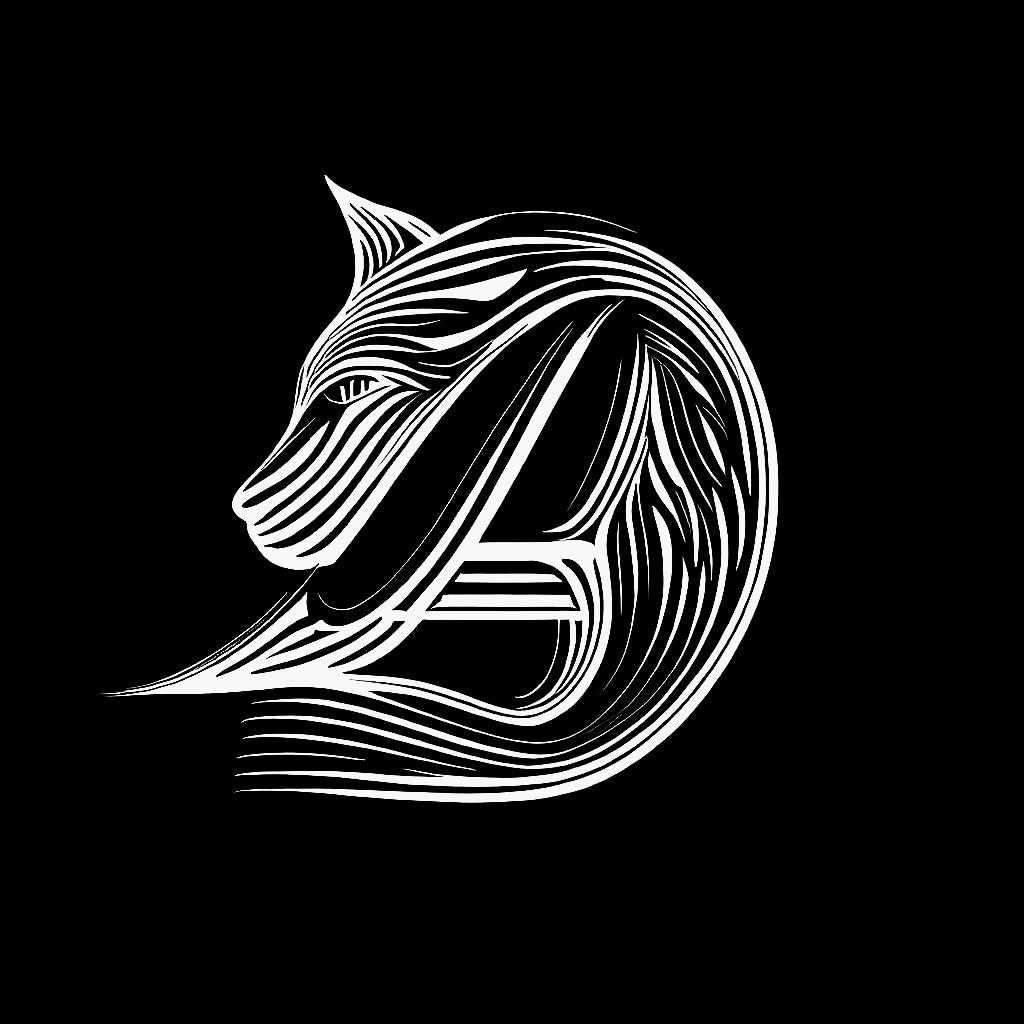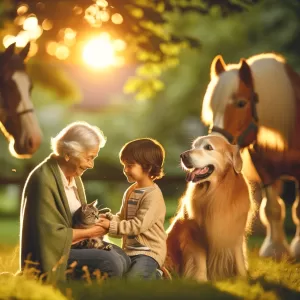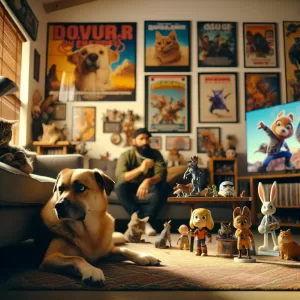There’s a silent conversation that happens between a human and a pet. This conversation transcends languages, geographical boundaries, and even time. As humans, we’ve shared a unique bond with our animal counterparts for thousands of years, a bond that has influenced our culture in ways more profound than we often realize. In this narrative journey, we’ll uncover how pets have shaped, inspired, and steered human cultures throughout history, and in turn, how they’ve sculpted the world as we know it.
Chapter 2: Symbols and Sacred Bonds: Pets in Ancient Civilizations
The deep-rooted bond between humans and pets stretches back to the earliest civilizations. Our forebears saw more in pets than mere beasts of burden or hunting companions; they observed in them symbols of divinity, protection, and prosperity. The relics and records from these bygone eras offer us fascinating insights into how pets were revered and idolized, shaping human culture in profound ways.
The Egyptian Pantheon: Cats as Divine Creatures
When we think of ancient civilizations and their relationship with pets, Egypt invariably stands out. The Egyptians, known for their advanced civilization and deep spiritual beliefs, held cats in the highest regard. Cats were not just pets in ancient Egypt; they were sacred animals, deeply interwoven into their mythology and daily life.
Bastet, the ancient Egyptian goddess of home, fertility, and childbirth, was often depicted as a lioness or a domestic cat. Egyptians believed cats possessed protective qualities, safeguarding their homes against evil spirits and disease. They were seen as symbols of grace and poise, their elegant movements and hunting skills admired and cherished.
So revered were cats that harming one, even accidentally, was a crime punishable by death. When a pet cat died, its human family would go into mourning, often shaving their eyebrows as a sign of their grief. It was customary to mummify the cats, and they were buried in sacred cemeteries, some alongside their human companions.
The Greek Canine Companions: Dogs as Protectors and Symbols of Loyalty
Moving from the land of pyramids to the realm of the gods and philosophers, ancient Greece offers another illuminating perspective on the relationship between humans and pets. While the Egyptians cherished cats, the Greeks had a deep affinity for dogs.
Dogs in ancient Greece were seen as loyal companions and vigilant protectors. They were primarily used for hunting and guarding homes, but their impact on Greek culture extended beyond these functional roles. Dogs featured prominently in Greek mythology, their character traits symbolizing loyalty, vigilance, and companionship.
Consider Cerberus, the infamous three-headed hound guarding the entrance to Hades, symbolizing loyalty and protection. Or Argos, the loyal dog of Odysseus, who waited patiently for his master’s return from the Trojan War, becoming a symbol of unwavering loyalty. These canine characters have endured through the centuries, still resounding in the stories and narratives we tell today.
The Cultural Echoes: Pets in Contemporary Society
The respect and reverence shown to pets in ancient civilizations have permeated contemporary societies. Today, pets continue to be valued members of our households, celebrated for their loyalty, protection, companionship, and even their perceived ability to bring good luck.
The fascination with Egyptian cat lore has seeped into various facets of modern culture. From Halloween costumes and jewelry designs to the popularity of cat memes on the internet, echoes of Bastet and her feline mystique reverberate around us. Similarly, the symbolic loyalty of the Greek dogs influences our perception of dogs today, shaping our stories, movies, and societal values.
As we trace our way through the annals of history, we realize that our pets have walked with us, not behind us. They have played critical roles in shaping human cultures and civilizations, their influence looming large over our symbolic narratives and rituals. From the sandy banks of the Nile to the rocky slopes of Mount Olympus, pets have left their pawprints and feathers, silently sculpting the course of human civilization.








